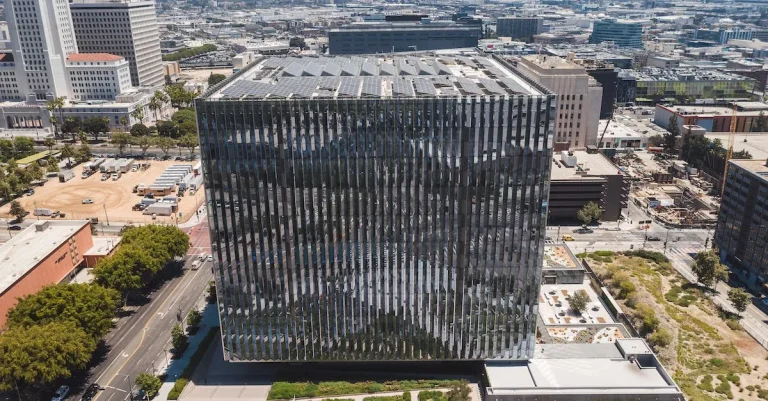The Meaning And Origins Of The Name Los Angeles
The name Los Angeles is recognized around the world as belonging to the sprawling Southern California metropolis that is the second largest city in the United States. But where did this name come from and what exactly does it mean? If you’re looking for a quick answer, here’s the gist: Los Angeles means “The Angels” in Spanish, and it refers to the original name of the area given by early Spanish explorers and missionaries.
In this comprehensive article, we’ll dive deep into the history and meaning behind the name of this famous city. We’ll look at the original native peoples who lived in the area, how it got its name from Spanish settlers, and what the name Los Angeles represents about the region’s history and culture.
The Origins of the Name Los Angeles
The Native Tongva People of the Los Angeles Basin
The name Los Angeles finds its origins in the Native American Tongva people who inhabited the Los Angeles Basin for thousands of years before the arrival of European settlers. The Tongva, also known as the Gabrielino-Tongva Tribe, were a Native American group that lived in the region that is now Los Angeles County and parts of Orange County, California.
The Tongva people called the area “Yaa,” which means “place of the coyote” in their language. The coyote held great significance in their culture, representing intelligence, adaptability, and survival skills.
The Tongva people had a deep connection to the land and its natural resources, relying on hunting, fishing, and gathering for sustenance.
When Spanish explorers arrived in the area in the late 18th century, they encountered the Tongva people and their vibrant culture. However, the arrival of the Spanish marked a significant shift in the region’s history and the eventual renaming of the area.
Spanish Colonization and the Founding of Los Angeles
In 1781, Spanish colonizers established El Pueblo de Nuestra Señora la Reina de los Ángeles del Río de Porciúncula, which translates to “The Town of Our Lady the Queen of the Angels of the Porciúncula River.” This lengthy name was eventually shortened to Los Angeles.
The Spanish colonizers named the settlement after the Catholic mission, La Iglesia de Nuestra Señora de los Ángeles de Porciúncula (The Church of Our Lady of the Angels of Porciúncula), which was dedicated to the Virgin Mary.
The mission played a crucial role in the Spanish colonization of California and the spread of Christianity among the indigenous population.
Over time, the name Los Angeles became associated with both the city and the surrounding region. Today, Los Angeles is a thriving metropolis known for its diverse culture, entertainment industry, and iconic landmarks such as the Hollywood Sign and the Griffith Observatory.
To learn more about the fascinating history of Los Angeles and its origins, you can visit the official website of the Los Angeles Public Library at https://www.lapl.org/.
The Meaning Behind the Words Los Angeles
Los Angeles, often referred to as L.A., is a city known for its glitz and glamour. But have you ever wondered about the meaning behind its name? Let’s take a closer look at the Spanish words that make up the name Los Angeles and explore their significance.
A Closer Look at the Spanish Words
The name Los Angeles is Spanish for “The Angels.” The word “los” is the plural form of “el,” which means “the,” and “ángeles” translates to “angels.” This name reflects the city’s strong connection to its Spanish colonial roots.
Los Angeles was founded in 1781 by Spanish governor Felipe de Neve. At the time, it was known as “El Pueblo de Nuestra Señora la Reina de los Ángeles del Río de Porciúncula,” which translates to “The Town of Our Lady the Queen of the Angels of the Porciúncula River.”
Over time, the name was shortened to Los Angeles.
The Spanish word “ángeles” itself comes from the Latin word “angelus,” meaning “messenger” or “angel.” The choice of this name for the city reflects the Spanish settlers’ religious beliefs and their desire to honor the angels as divine messengers.
The Significance of ‘The Angels’
Los Angeles is often referred to as “The City of Angels,” and the name holds a special significance in the city’s identity. It symbolizes the city’s rich cultural heritage and the diverse communities that call it home.
Furthermore, “The Angels” can be seen as a nod to the city’s reputation as a place of dreams and aspirations. Los Angeles has long been associated with the entertainment industry and has been a magnet for aspiring actors, musicians, and artists.
It represents a place where dreams can come true, where individuals can pursue their passions and reach for the stars.
Today, Los Angeles is a vibrant and diverse metropolis, attracting people from all walks of life. It is a city that continues to evolve and redefine itself, while still embracing its historical roots. The name Los Angeles serves as a reminder of the city’s past and the dreams it inspires in its residents and visitors.
For more information on the history of Los Angeles, you can visit www.discoverlosangeles.com/about-la/history.
Other Theories About the City’s Name
Connection to the Santa Ana Winds
While the commonly accepted theory is that Los Angeles derives its name from the Spanish words for “The Angels,” there are alternative theories that propose a different origin. One such theory suggests a connection between the city’s name and the Santa Ana Winds.
These powerful, dry winds that blow through Southern California have been a part of the region’s history for centuries. Some believe that the name “Los Angeles” could be a reference to the winds, with “Angeles” being a variation of the Spanish word “angelitos,” meaning little angels.
This theory highlights the significance of the winds in the area and their impact on the city’s climate.
Reference to Queen Los Angeles
Another intriguing theory proposes that the name Los Angeles is a reference to a mythical Queen Los Angeles. According to this theory, the name was chosen as a homage to a powerful and influential female figure who played a significant role in the region’s history.
While there is limited evidence to support this theory, it adds a touch of mystery and allure to the origin of the city’s name.
It is important to note that these alternative theories are not widely accepted and lack substantial evidence. The prevailing belief remains that Los Angeles is named after “The Angels” in Spanish. However, exploring these alternative theories allows us to delve into the rich tapestry of the city’s history and the diverse perspectives surrounding its name.
The Enduring Legacy of the City’s Name
Reflecting Spanish Heritage
The name “Los Angeles” has a rich history that reflects the city’s Spanish heritage. The name itself is derived from the Spanish phrase “Los Ángeles,” which means “The Angels.” It was given to the city by Spanish colonizers in the 18th century, who named it after the Catholic mission, Our Lady of the Angels of Porciúncula.
This mission was founded by Father Junípero Serra, a Spanish Franciscan friar, who played a significant role in the colonization of California.
The Spanish influence on Los Angeles is still evident today, from the architecture to the street names. Many of the city’s iconic landmarks, such as Olvera Street and the Los Angeles Plaza Historic District, showcase Spanish colonial-style architecture and serve as reminders of the city’s origins.
The Spanish language has also left its mark on the city, with a significant Hispanic population and a vibrant cultural scene that celebrates its heritage.
Influencing City Culture and Identity
The name “Los Angeles” has had a profound impact on the city’s culture and identity. It has become synonymous with the entertainment industry, attracting aspiring actors, musicians, and artists from all over the world.
The city’s association with Hollywood and the film industry has made it a symbol of glamour, dreams, and success. Los Angeles has become a cultural melting pot, where people from diverse backgrounds come together to pursue their passions and make their mark on the world.
The name “Los Angeles” has also become a source of pride for the city’s residents. It embodies the spirit of creativity, innovation, and possibility that is deeply ingrained in the city’s DNA. The name has become a rallying cry for Angelenos, a symbol of their collective identity and shared aspirations.
It represents a city that embraces diversity, celebrates individuality, and welcomes new ideas and perspectives.
Conclusion
In conclusion, while Los Angeles today is an immense, diverse metropolis, its name still reflects its origins going back centuries to the time of Spanish colonization and mission-building. The oft-repeated meaning, “The Angels,” connects to the city’s foundational identity rooted in early Catholic missionary efforts among the native inhabitants. Beyond the straightforward translation, the name also evokes the city’s distinctive natural surroundings, from its arid climate to the hot winds that gave rise to the name Santa Ana. From its tongva beginnings through decades of explosive growth into one of the world’s great cities, the meaning behind the name Los Angeles provides a window into the storied past and ever-evolving culture of Southern California.








